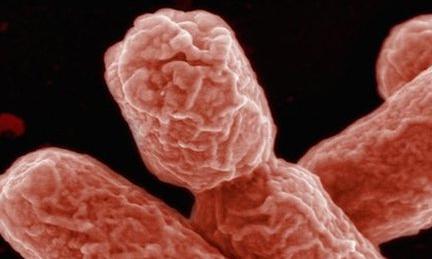 The EU health commissioner has said the current E. coli outbreak is limited geographically to northern Germany and does not need Europe-wide controls.
The EU health commissioner has said the current E. coli outbreak is limited geographically to northern Germany and does not need Europe-wide controls.
John Dalli also warned against releasing unproven information on the outbreak, saying it spread fear and adversely affected farm producers.
He was speaking ahead of emergency talks by EU agriculture ministers.
Efforts continue to find the source of the E. coli outbreak, which has killed 22 people and sickened 2,200.
All the deaths, bar one in Sweden, have been in Germany. Twelve countries have been affected, with the cases outside Germany linked to travel there.
The latest focus has been on bean sprouts from a German farm in Uelzen, south of Hamburg. However, of 40 samples examined from the farm, the first 23 tested negative.
'Honour of the cucumber'
Mr Dalli told the European Parliament: "I stress that the outbreak is limited geographically to the area surrounding the city of Hamburg, so there is no reason to take action on a European level. [EU-wide] measures against any product are disproportionate."
But he admitted that bans on certain products were a Europe-wide problem.
Russia has banned imports of fresh vegetables from the EU.
Mr Dalli said: "We are in constant contact with third countries, including Russia. We are urging Russia to lift their ban; it is disproportionate."
Detailing how the crisis unfolded, he said that originally pinpointing cucumbers from Spain as the source had been wrong.
He said: "It's crucial that national authorities don't rush to give information on the source of infection when it's not justified by the science.
"That creates fears and problems for our food producers. We must be careful not to make premature conclusions."
He insisted that the EU's rapid alert system had worked, although "we need to learn lessons as we go along".
After he spoke, Spanish delegate Francisco Sosa Wagner held up a cucumber during his speech, saying: "We need to restore the honour of the cucumber."
Later in Luxembourg, the EU agriculture ministers will want to know how close experts are to identifying the source, amid mounting criticism of the investigation, the BBC's Europe correspondent Chris Morris reports.
He says the meeting will also consider the sensitive issue of compensation for farmers; harsh words may well be exchanged and EU solidarity tested once again.
Spain says it is demanding 100% compensation from Germany for huge losses suffered by its vegetable farmers because of false accusation.
Spain's fruit and vegetables exporters association has estimated losses at 225m euros (£200m) a week.
The BBC's Mark Lobel in Strasbourg says the aid package for farmers is expected to be more than 100m euros ($146m); it will be fully drawn from existing EU funds and possibly issued within weeks.
It will cover 30% of the usual seasonal price paid for cucumbers, tomatoes and lettuce lost from the end of May, he says.
In the European Parliament, UK Lib Dem MEP George Lyon urged the EU to take steps to rebuild consumer confidence.
Elisabeth Koestinger, a centre-right MEP from Austria, said 75% of the fresh vegetable market had collapsed in Austria alone and farmers were suffering in the middle of a harvest.
She said the EU must introduce better food labelling to show the origin and provide traceability throughout the food chain.
The EU ministers are also expected to address the Russian ban.
Different strain?
On Monday, Germany's Lower Saxony agriculture ministry said that "investigations are continuing", as as it announced that the first tests had proved negative.
It added that it did not expect "any short-term conclusions", and that given the complex testing procedure, the remaining 17 samples may not be returned for a few more days.
The organic farm in Uelzen is about 100km (62 miles) south of Hamburg, the epicentre of the outbreak.
It produces bean sprouts including adzuki, alfalfa, broccoli, peas, lentils and mung beans, all grown in a nursery for consumption in salads.
The farm's general manager, Klaus Verbeck, was quoted by the Neue Osnabruecker Zeitung newspaper as saying that he could not see how it was to blame.
One report on Tuesday cast doubt on whether the outbreak was a strain of enterohaemorrhagic E.coli (EHEC), which is normally transmitted through faeces or faecal bacteria.
Lothar Beutin, of Germany's Federal Institute for Risk Assessment, was quoted by the Taggesspiegel newspaper as saying the strain was of enteroaggregative E.coli (EAEC), characterised by heavy diarrhoea.
He said such strains were not found in the digestive track of cows but in that of humans and it was unlikely the bacteria could have been passed through animal manure.



